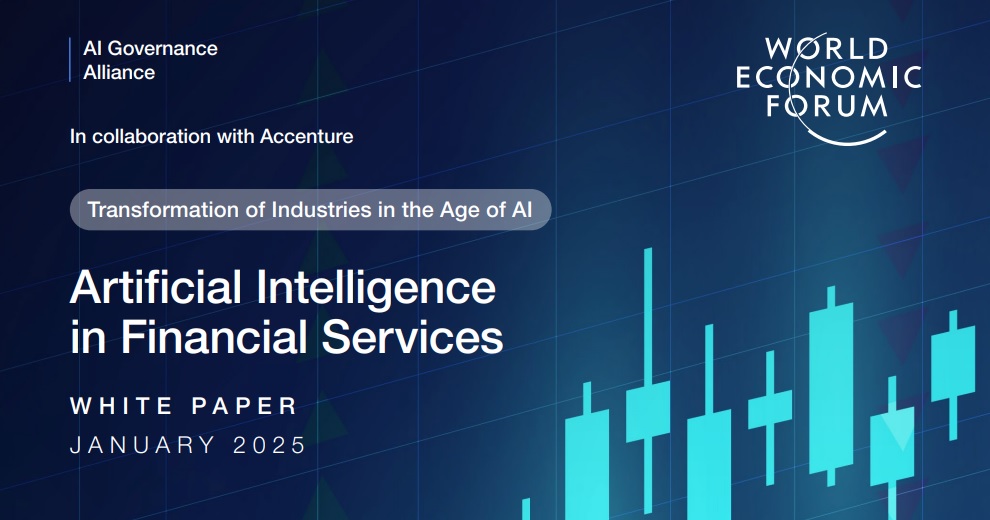
This white paper, developed by AI Governance Alliance in collaboration with Accenture, provides an overview of the state of AI in financial services, along with key open questions and emerging risks to be considered by business leaders, policy-makers and customers. The work explores a fundamental question: how might AI not only influence the strategic direction of individual financial institutions but also transform the entire financial services landscape in the years to come?
Building upon the World Economic Forum’s 2024 dialogue series on AI in financial services, this collaborative effort synthesizes insights from over 100 experts from banks, insurance, asset management, fintechs and the investor ecosystem. It examines how AI is impacting core business functions, identifying both the strategic opportunities and the challenges that accompany this rapidly evolving technology. This white paper aims to serve as a valuable resource for stakeholders as they navigate the complexities of AI adoption and strive to harness its potential within the financial sector.
Key insights:
Financial services businesses with their data-rich and language-heavy operations are uniquely positioned to capitalize on the developments of AI and have been doing so for years. More recently, with thedevelopments of generative AI (genAI), research indicates that 32-39% of the work performed across capital markets, insurance and banking businesses has high potential to be fully automated and 34-37% holds high augmentation potential. This has driven a significant increase in new AI investment.
In 2023, financial services firms spent $35 billion on AI, with projected investments across banking, insurance, capital markets and payments businesses expected to reach $97 billion by 2027. With this sizeable investment, financial services are one of the most heavily invested industries in AI, with prominent use cases across the enterprise where automation and machine learning are streamlining tasks, reducing operational costs and improving accuracy.
With much of the existing AI adoption in financial services largely focused on driving efficiency, the attention of business leaders is now shifting towards revenue growth opportunities. Backend applications will continue to be important; in addition, approximately 70% of financial services executives believe AI will directly contribute to revenue growth in the coming years.
The rapid maturing of AI, coupled with an expanding list of applicable uses, is pushing the industry towards reinvention at an unprecedented – and often uncomfortable – speed and scale. As technological developments accelerate, the integration of various emerging innovations, such as small language models, AI agents and quantum computing will drive both innovation and uncertainty across financial services. This shift will continue to challenge business leaders, policy-makers and regulators.
Looking ahead, financial services stakeholders must increase collaboration to address key risks such as data transparency, privacy, cybersecurity and the spread of misinformation, while also closing policy gaps that could hinder the use and innovation of AI. Overcoming these challenges is essential to ensuring that AI can be leveraged effectively and responsibly across the industry, now and in the future.
Banking 4.0 – „how was the experience for you”
„To be honest I think that Sinaia, your conference, is much better then Davos.”
Many more interesting quotes in the video below: